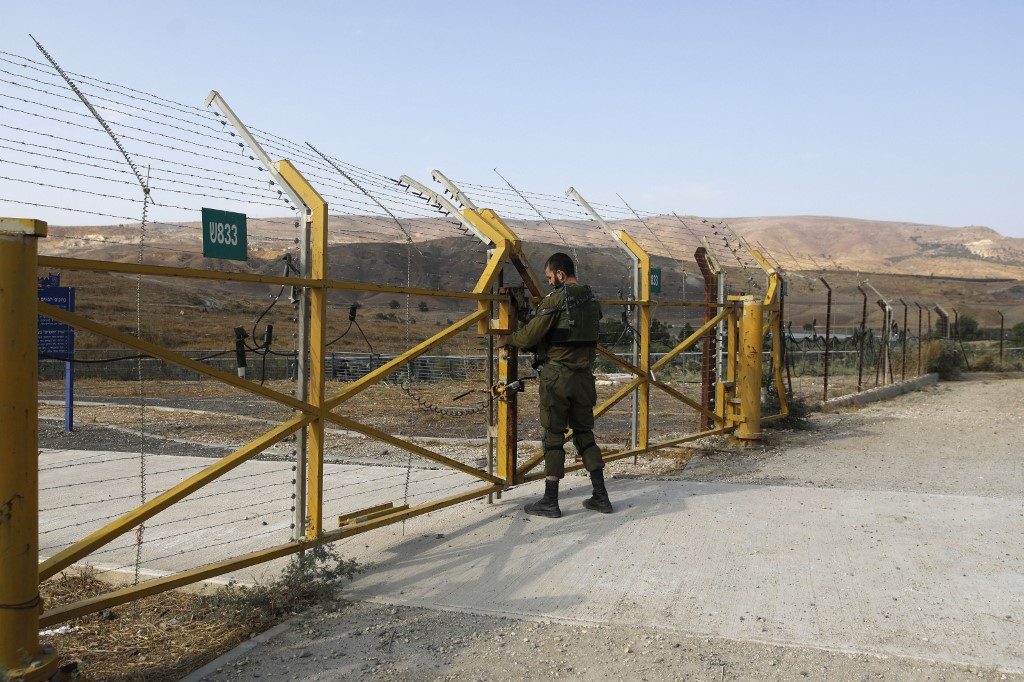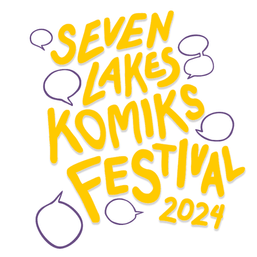SUMMARY
This is AI generated summarization, which may have errors. For context, always refer to the full article.

NAHARAYIM, Israel – Israelis were prevented from entering two Jordanian border enclaves on Sunday, November 10, after a deal allowing farmers to work land there expired and as the Arab state’s king reclaimed full sovereignty over the areas.
Israelis whose livelihood stemmed from the enclaves braced for losses, with the failure to renew a clause on the two territories as part of a 25-year-old landmark peace agreement between the two countries indicative of a souring of bilateral ties.
Since the two countries signed the deal in 1994, Jordan has allowed Israeli farmers access to the territories of Ghumar in the north and Baqura in the south under a renewable arrangement.
In October last year, however, Jordan’s King Abdullah said his country had notified Israel that it wants the two parcels of territory back.
And on Sunday, in a speech from the throne opening parliament, the king announced “the expiration of the Peace Treaty annexes on Al Ghamr and Baqura and the imposition of our full sovereignty over every inch of those lands.”
Two yellow gates leading to a dam complex where the narrow Jordan and Yarmuk rivers meet, and then to a Jordanian checkpoint, were locked with chains.
Local officials said Israeli soldiers locked the gates around 5 pm (1500 GMT or 11 pm Philippine time) on Saturday, November 9.
Baqura, known in Hebrew as Naharayim, lines on a spit of land where the Jordan and Yarmuk rivers meet.
The territory known by Israel as Naharayim also extends beyond the enclave into land recognized as Israeli.
On a hilltop on the other side, a Jordanian flag flew above two tents where a ceremony was expected on Monday and Jordanian military vehicles drove through the area. The valley’s sun-baked brown and yellow hills rose behind it.
On the Israeli side, a memorial garden for 7 girls killed in a 1997 massacre is located near the fence, together with a small shop for refreshments for visitors.
A few local officials gathered in the shade of the shop’s terrace, but there was otherwise little activity. A handful of Israeli soldiers kept an eye on the fence.
Local Israeli official Shay Hadar said around 150 people would visit the enclave of Naharayim on a normal weekend with Jordanian permission.
He said the visitors would see the remains of the Rutenberg hydroelectric power plant and train station and learn about the history of the so-called Island of Peace, formed by the winding paths of the two rivers that encircle it.
The 47-year-old said that around 800 dunams of the site were farmed by two nearby agricultural communities. Crops included wheat, watermelon and others, depending on the season.
‘It’s a big loss’
Tour money will be lost and business at a guest house at the Ashdot Yaakov Ihud kibbutz is expected to suffer.
“Of course it’s a big loss,” said Adva Algarisi, director of tourism for the kibbutz, who explained that visitors would often combine trips to the Island of Peace with other sites in the area.
“It’s close to the (Sea of Galilee), it’s close to other Christian places, holy places,” she said, noting the site’s unique added value of demonstrating “how to live in peace with our neighbors.”
Residents of the area were hoping to eventually regain some sort of access to the lands, or compensation from the Israeli government.
“What’s most important is the fields, the land” that were used to work, to plant, said Ami Kabri, spokesman for the Jordan Valley regional council.
The second enclave Ghumar, deep in the Negev desert south of the Dead Sea, is known in Hebrew as Tzofar.
The lands have been privately owned by Israeli entities for decades, but the 1994 deal saw the kingdom retain sovereignty there.
Since the heady days of Israel’s second peace treaty with an Arab state – after Egypt – relations with Amman have been strained.
Opinion polls have repeatedly found that the peace treaty with Israel is overwhelmingly opposed by Jordanians, more than half of whom are of Palestinian origin.
In 1997, a Jordanian soldier opened fire at a group of Israeli schoolgirls touring the so-called “Peace Island” at Naharayim, killing 7 and prompting then-King Hussein to conduct condolence visits with the families.
In 2017, an Israeli embassy security guard in Amman killed two Jordanians.
Three years earlier, an Israeli soldier at a border crossing killed a Jordanian judge he deemed a threat.
Just last month, Amman recalled its ambassador from Israel over the prolonged detention without trial in the Jewish state of two Jordanians. The ambassador returned after the two were released. – Rappler.com
Add a comment
How does this make you feel?



![[Ilonggo Notes] The foremost Filipino engraver, sadly unremembered, needs to be given his due](https://www.rappler.com/tachyon/2024/03/Figueroa-.jpg?resize=257%2C257&crop=265px%2C0px%2C720px%2C720px)

There are no comments yet. Add your comment to start the conversation.